Cape Town Travel Guide
Cape Town Travel Guide – prepare your trip to Cape Town with our practical guide: where to go, what to do, food, rooftops, how to get around, safety and more.

Cape Town is a city that boasts a rich history, cultural diversity, and natural beauty, making it a popular tourist destination for people from all over the world. Cape Town is known for its famous landmarks, such as Table Mountain, Robben Island, and the Victoria & Alfred Waterfront, which provide visitors with breathtaking views and unforgettable experiences.
One of the main attractions of Cape Town is its stunning beaches. With a coastline stretching over 300km, visitors can enjoy a variety of water sports and outdoor activities, including surfing, kayaking, and swimming. Some of the most popular beaches in Cape Town include Camps Bay, Clifton, and Muizenberg, each with its own unique charm and atmosphere.
Cape Town is also known for its food and wine culture, with a variety of world-class restaurants and vineyards located in and around the city. Visitors can indulge in local cuisine, including traditional Cape Malay dishes, as well as sample some of the finest wines from the Cape Winelands region. With its picturesque landscapes, rich cultural heritage, and diverse range of attractions, Cape Town is a must-see destination for any traveler.
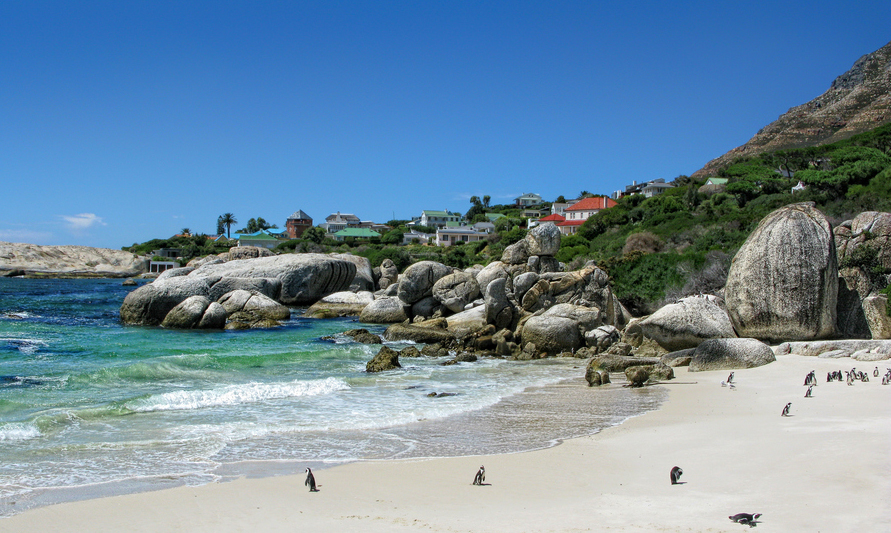
Travel to Cape Town
The best time to go to Cape Town – the 4 seasons in Cape Town
The best time to visit Cape Town depends on what you want to do and see, as the city has something to offer all year round. Generally, the peak tourist season in Cape Town is from December to February, when the weather is warm and sunny, and school holidays are in session. However, this is also the busiest and most expensive time of the year, so visitors who prefer a quieter experience may want to consider visiting in the shoulder seasons of March to May or September to November.
Cape Town has a Mediterranean climate, with four distinct seasons. The summer season, from December to February, is warm and dry, with average temperatures ranging from 20-30°C (68-86°F). This is the best time for beachgoers, as the sea temperature is also at its warmest. The autumn season, from March to May, is cooler, with average temperatures ranging from 15-25°C (59-77°F). This is a great time for outdoor activities, such as hiking, as the weather is mild and the crowds are smaller.
The winter season, from June to August, is mild and wet, with average temperatures ranging from 7-18°C (45-64°F). This is a good time to visit for those who want to experience the city’s cultural offerings, such as museums and art galleries, or for those who want to see the city’s natural beauty in a different light. The spring season, from September to November, is a popular time for nature lovers, as the flowers start to bloom, and the weather is mild and sunny, with average temperatures ranging from 15-25°C (59-77°F).
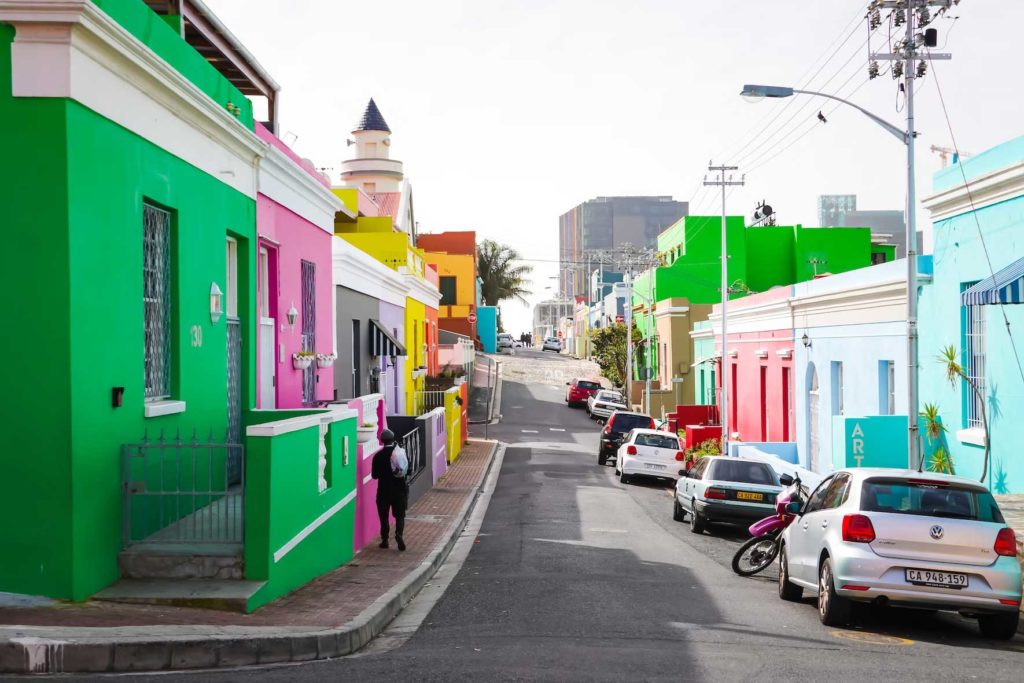
Visa requirements
Visa requirements for traveling to Cape Town, South Africa, vary depending on your nationality. Citizens of many countries, including the United States, Canada, and most European countries, do not need a visa for stays of up to 90 days for tourism purposes.
However, it is always a good idea to check with the South African embassy or consulate in your country of residence to verify the latest visa requirements and any necessary documentation, such as a valid passport and proof of onward travel. It’s also important to note that visa requirements can change at short notice, so it’s a good idea to check the latest information before planning your trip to Cape Town.
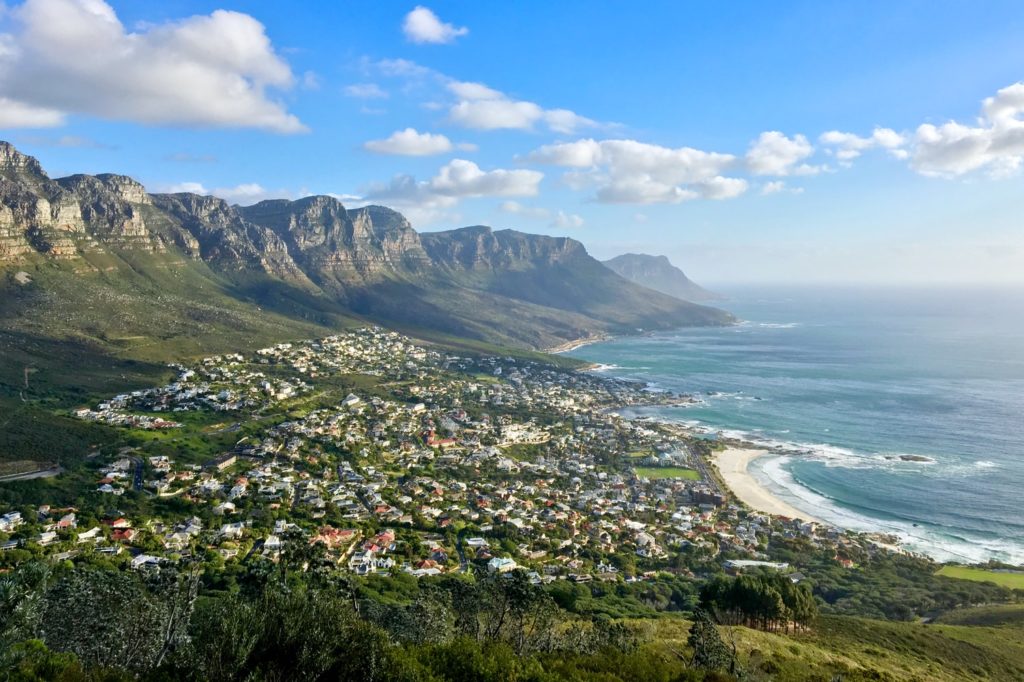
From Cape Town airport to the city center
Cape Town International Airport is located approximately 20 kilometers (12 miles) from the city center. There are several transportation options available for travelers to get to the city center, including:
Taxi: There are a number of taxi services available at the airport, with fares averaging around R350-450 ($25-30 USD) for a one-way trip to the city center.
Shuttle Bus: The MyCiTi Shuttle is a reliable and affordable option for travelers, with a fare of R100 ($7 USD) for a one-way trip to the city center. The shuttle runs every 20 minutes and is available from 06:00 to 21:00.
Car Rental: There are several car rental companies located at the airport, making it easy to rent a car and drive to the city center. The average cost of a car rental is around R300-500 ($20-35 USD) per day, depending on the type of vehicle and rental company.
Uber: Uber is widely available in Cape Town, with fares ranging from R150-250 ($10-17 USD) for a one-way trip to the city center.
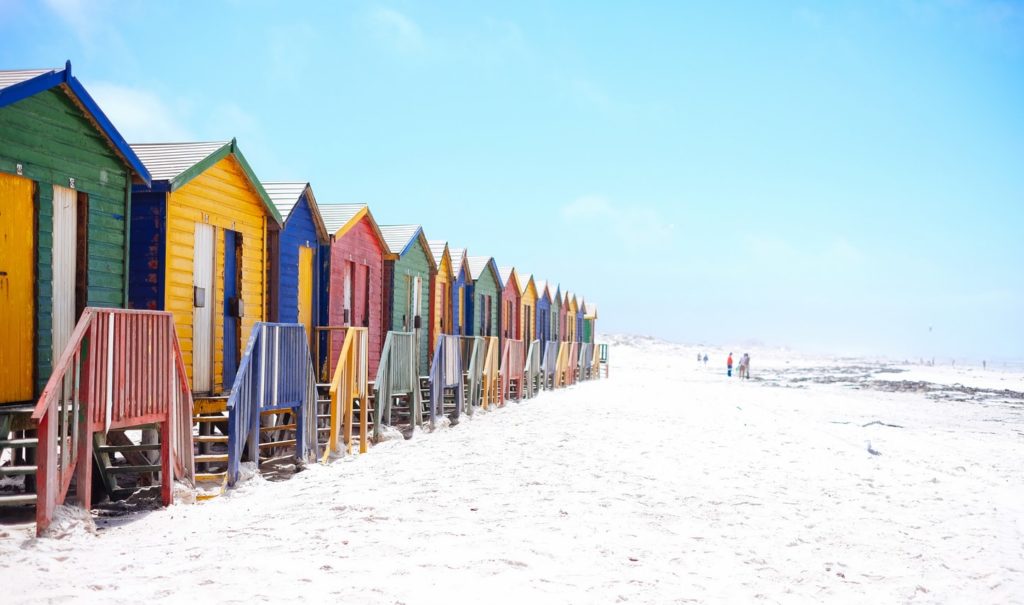
The best ways to get around Cape Town
Cape Town has a number of transportation options for getting around the city. Here are some of the best ways to get around Cape Town:
MyCiTi Bus: The MyCiTi bus system is a convenient and affordable way to get around the city. The buses run on a dedicated bus lane, making them faster and more reliable than other forms of public transportation. Fares are based on distance traveled and start at around R8 ($0.50 USD).
Minibus Taxis: Minibus taxis are a popular mode of transportation in Cape Town, especially for locals. They operate on set routes and can be hailed from the side of the road. Fares are generally cheap, but the experience can be overwhelming for some travelers.
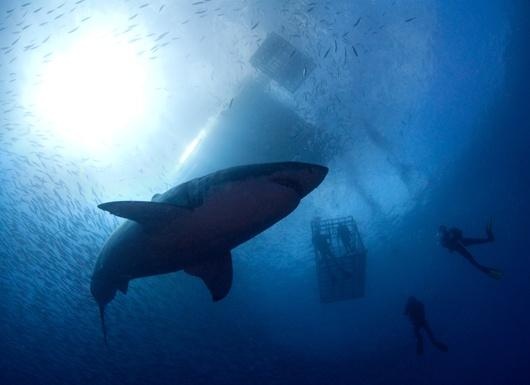
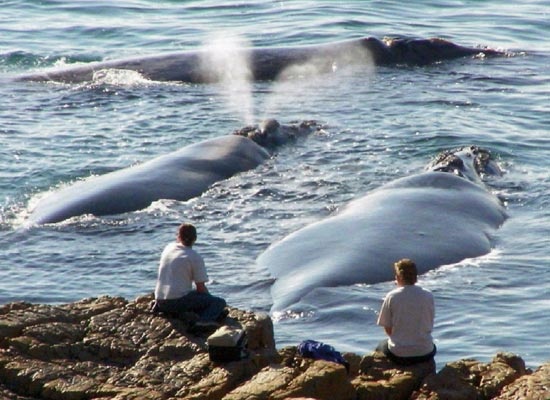
Uber and other ride-sharing apps: Uber and other ride-sharing apps are widely available in Cape Town, offering a convenient and safe option for getting around the city. Fares vary based on distance and time of day.
Car rental: Renting a car is a good option for those who want more freedom and flexibility to explore Cape Town and its surroundings. There are a number of car rental companies located in the city and at the airport.
Walking and cycling: Many of Cape Town’s attractions are within walking or cycling distance of each other, making it a great way to explore the city at a slower pace. There are also several bike rental shops located throughout the city.
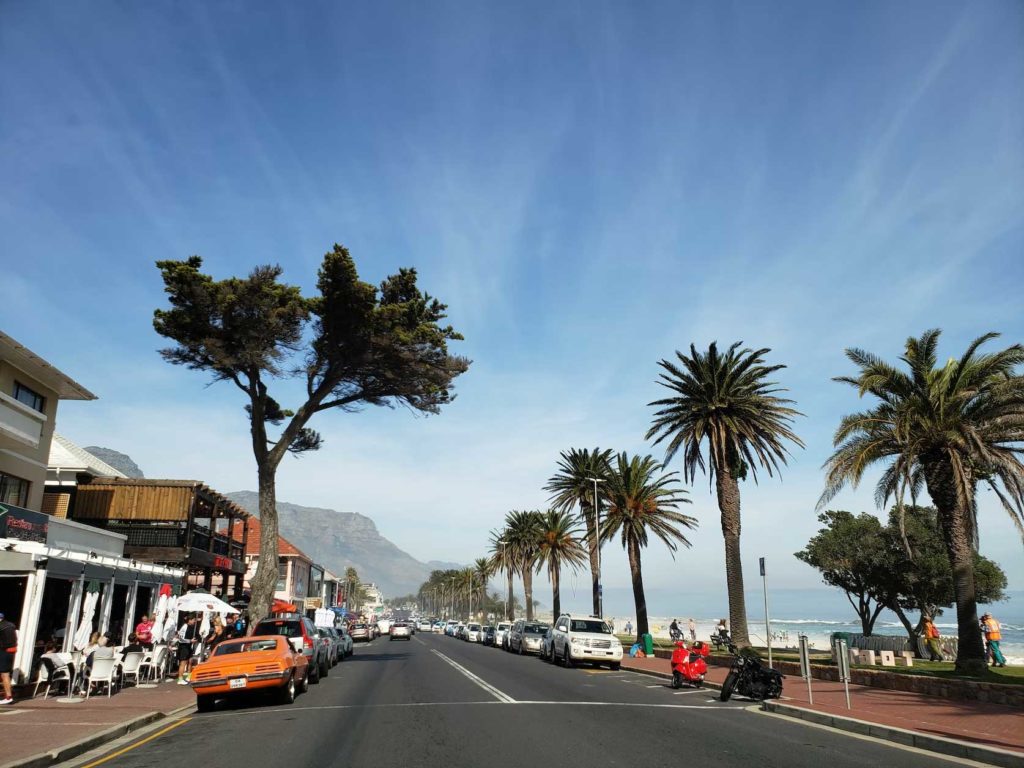
Explore Cape Town neighbourhoods
City Bowl:
City Bowl is the heart of Cape Town, located at the foot of Table Mountain. It’s home to several major tourist attractions, including the V&A Waterfront, the Bo-Kaap neighborhood, and the Company’s Garden. Visitors can explore the bustling streets of Long Street, which is lined with shops, bars, and restaurants. For panoramic views of the city, head to the top of Table Mountain via the Table Mountain Aerial Cableway. Other popular points of interest in the City Bowl include the Castle of Good Hope, the South African National Gallery, and the Greenmarket Square.
Camps Bay:
Camps Bay is a beachside neighborhood located on the Atlantic Seaboard, known for its stunning views and trendy cafes and restaurants. The main attraction in Camps Bay is its white sandy beach, which is popular with locals and tourists alike. Visitors can also take a scenic drive along Victoria Road, which offers breathtaking views of the ocean and coastline. Other points of interest in Camps Bay include the Theatre on the Bay, the Twelve Apostles mountain range, and the nearby Kirstenbosch Botanical Gardens.
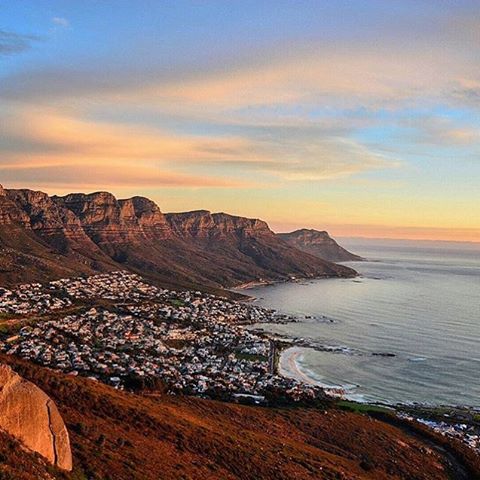

Bo-Kaap:
Bo-Kaap is a vibrant and colorful neighborhood located on the slopes of Signal Hill. It’s known for its brightly colored houses and rich cultural heritage, as it was originally settled by freed slaves and Muslim immigrants from Southeast Asia. Visitors can explore the cobblestone streets of the neighborhood, which are lined with historic mosques, museums, and art galleries. Other points of interest in Bo-Kaap include the Atlas Trading Company, which sells traditional spices and textiles, and the Noon Gun, a historic cannon that is fired every day at noon.
Woodstock:
Woodstock is a hip and creative neighborhood located just outside the city center. It’s home to several galleries, boutiques, and cafes, as well as the Old Biscuit Mill, a popular weekend market. Visitors can explore the street art that adorns the neighborhood’s walls, or take a tour of the Woodstock Exchange, a hub for local artists and entrepreneurs. Other points of interest in Woodstock include the District Six Museum, which tells the story of a once-vibrant neighborhood that was forcibly removed during apartheid, and the Test Kitchen, one of Cape Town’s most acclaimed restaurants.
Sea Point:
Sea Point is a seaside neighborhood located between the city center and Camps Bay. It’s known for its scenic promenade, which stretches for several kilometers along the coast. Visitors can walk, jog, or cycle along the promenade, taking in the views of the Atlantic Ocean and the nearby Lion’s Head mountain. Other points of interest in Sea Point include the Sea Point Swimming Pool, which is located right on the ocean, and the nearby Clifton and Bantry Bay beaches.

Attractions and things to do in Cape Town
Top attractions to see in Cape Town
Table Mountain: A trip to Cape Town is not complete without a visit to Table Mountain, which offers stunning panoramic views of the city and the surrounding coastline. Visitors can take the Table Mountain Aerial Cableway to the top of the mountain, with a round-trip ticket costing R360 ($25 USD) for adults and R180 ($12.50 USD) for children.
Robben Island: Located in Table Bay, Robben Island is a UNESCO World Heritage Site and the former prison where Nelson Mandela was held for 18 years. Visitors can take a ferry from the V&A Waterfront to the island, where they can take a guided tour of the prison and learn about its history. Tickets cost R380 ($26 USD) for adults and R210 ($15 USD) for children.
V&A Waterfront: The Victoria & Alfred Waterfront is a popular tourist destination, with a variety of shops, restaurants, and entertainment options. Visitors can take a boat tour of the harbor, visit the Two Oceans Aquarium, or explore the Zeitz MOCAA, a contemporary art museum housed in a former grain silo. Entrance fees vary by attraction.
Kirstenbosch Botanical Gardens: Located on the slopes of Table Mountain, Kirstenbosch Botanical Gardens is a beautiful oasis that showcases the rich biodiversity of the Cape Floral Region. Visitors can take a leisurely walk through the gardens, which feature a variety of plants and flowers, including the famous Protea flower. Entrance fees cost R85 ($6 USD) for adults and R40 ($3 USD) for children.
Cape of Good Hope: Located at the southwestern tip of the Cape Peninsula, the Cape of Good Hope is a popular tourist destination known for its rugged coastline and stunning natural beauty. Visitors can hike to the top of Cape Point, take a scenic drive along Chapman’s Peak, or spot wildlife such as baboons and ostriches. Entrance fees to the Cape of Good Hope Nature Reserve cost R340 ($23 USD) for adults and R170 ($12 USD) for children.
Boulders Beach: Boulders Beach is a beautiful beach located in Simon’s Town, known for its resident colony of African penguins. Visitors can observe the penguins from a safe distance, or even swim with them in a designated area. Entrance fees cost R152 ($10 USD) for adults and R76 ($5 USD) for children.
District Six Museum: The District Six Museum is a moving tribute to the once-vibrant neighborhood of District Six, which was forcibly removed during apartheid. Visitors can learn about the history of the neighborhood and the people who called it home through photographs, artifacts, and personal stories. Entrance fees cost R45 ($3 USD) for adults and R20 ($1.50 USD) for children.
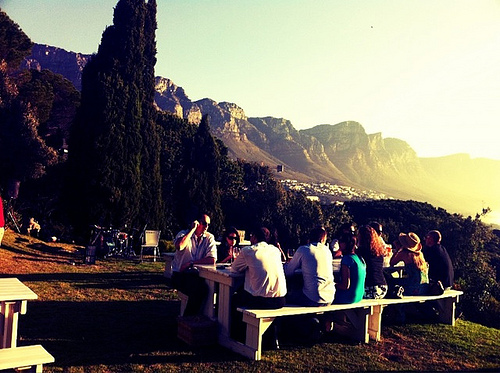
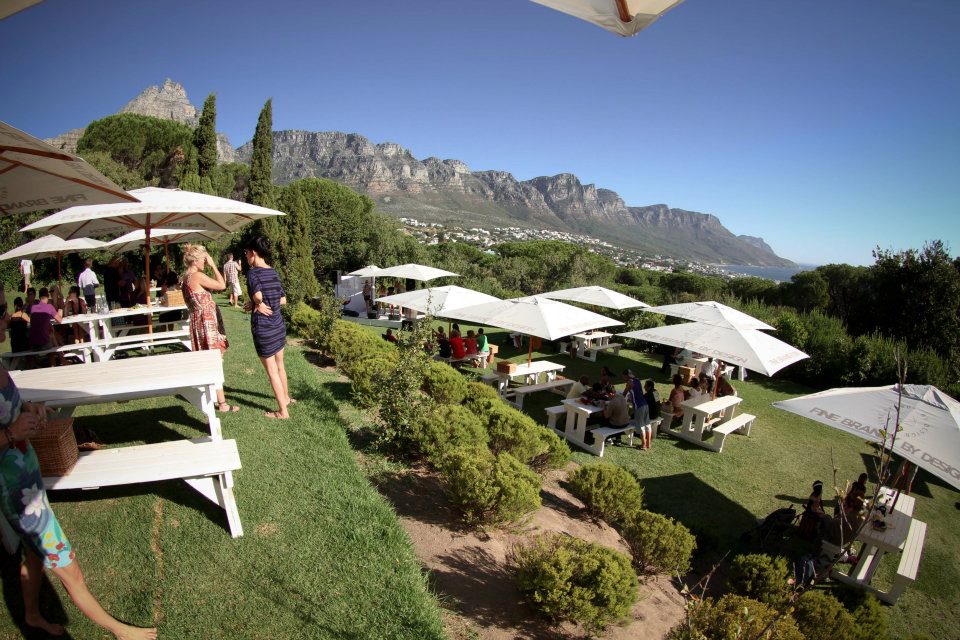
Two Oceans Aquarium: The Two Oceans Aquarium at the V&A Waterfront features a variety of marine life, including sharks, rays, and turtles. Tickets cost R190 ($13 USD) for adults and R140 ($10 USD) for children.
Chapman’s Peak Drive: Chapman’s Peak Drive is a scenic drive that offers stunning views of the Atlantic Ocean and the Hout Bay Valley. The toll fee for the drive is R50 ($3.50 USD).
District Six Museum: The District Six Museum tells the story of a once-vibrant neighborhood that was forcibly removed during apartheid. Entrance fees cost R45 ($3 USD) for adults and R20 ($1.50 USD) for children.
Cape Town City Tour: A guided tour of Cape Town is a great way to learn about the city’s history and culture. Prices vary depending on the tour operator.
Shark Cage Diving: Shark cage diving is a thrilling experience for adventure seekers. Prices vary depending on the tour operator, but generally start at around R2000 ($140 USD) per person.
Wine Tasting in the Cape Winelands: The Cape Winelands are home to some of South Africa’s best vineyards, making wine tasting a popular experience. Prices vary depending on the vineyard and the type of wine tasting.
Lion’s Head Hike: The Lion’s Head hike offers stunning views of the city and the Atlantic Ocean. The hike is free, but visitors should bring plenty of water and wear sturdy shoes.
Bo-Kaap Cultural Experience: Bo-Kaap is a colorful neighborhood with a rich cultural heritage. Visitors can take a tour of the neighborhood and learn about its history and traditions. Prices vary depending on the tour operator.
Paragliding: Paragliding is a thrilling way to see Cape Town from above. Prices vary depending on the tour operator, but generally start at around R1300 ($90 USD) per person.
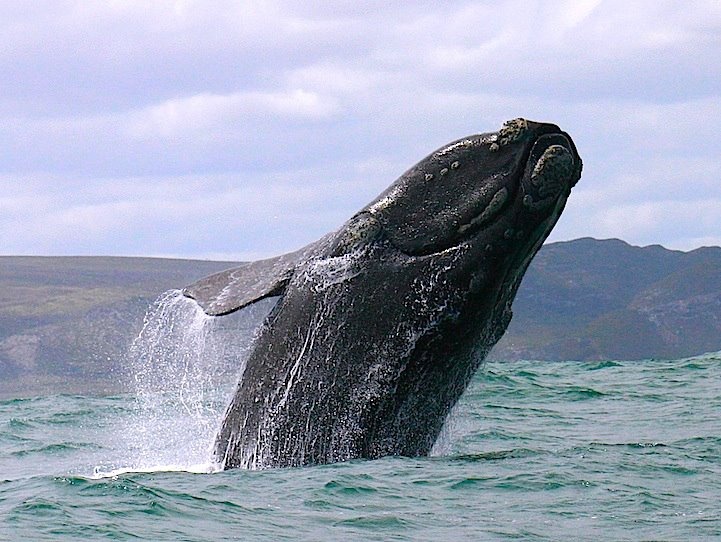
Fun things to do with with the family in Cape Town
Fun Things to Do with Kids in Cape Town:
Two Oceans Aquarium: The Two Oceans Aquarium at the V&A Waterfront is a great place for kids to see a variety of marine life, including sharks, turtles, and penguins.
World of Birds: The World of Birds is a bird sanctuary and wildlife park in Hout Bay that is home to over 3,000 birds and small animals.
Ratanga Junction: Ratanga Junction is a theme park located in Century City that offers a variety of rides and attractions for kids of all ages.
Scratch Patch: Scratch Patch is a fun activity where kids can search for and collect colorful gemstones. There are two locations in Cape Town, one at the V&A Waterfront and one in Simon’s Town.
Butterfly World: Butterfly World is a butterfly park in Stellenbosch that offers a hands-on experience for kids to learn about butterflies and their life cycle.
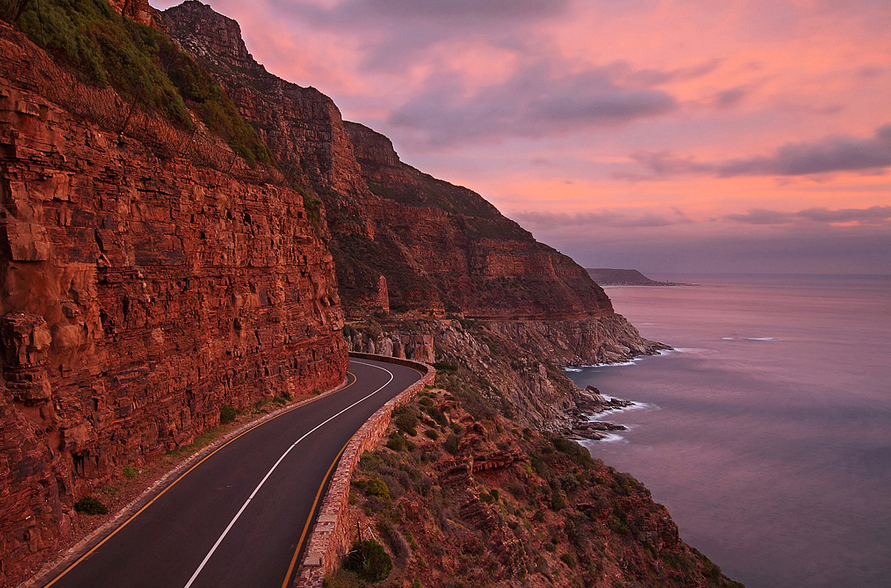
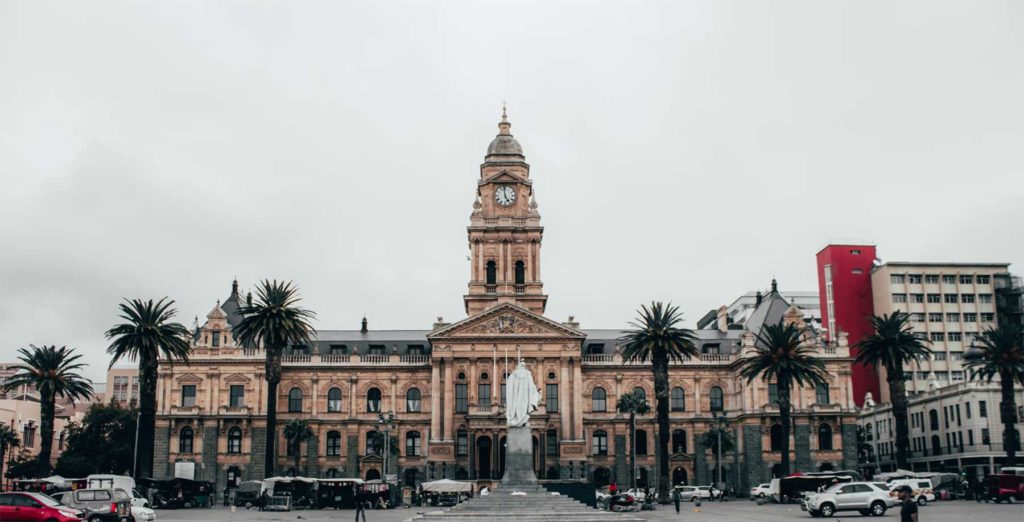
Fun Things to Do with Teens in Cape Town:
Surfing Lessons: Cape Town has several great surfing spots, and taking surfing lessons is a fun and adventurous activity for teens.
Zip-lining: Cape Town has several zip-lining courses, including the Cape Canopy Tour, which offers a thrilling ride through the Elgin Valley.
Hiking: Cape Town has many hiking trails that offer breathtaking views of the city and coastline. Popular hikes for teens include Lion’s Head and Table Mountain.
Stand-up Paddleboarding: Stand-up paddleboarding is a popular activity in Cape Town, especially in the calm waters of the V&A Waterfront and the canals of the Cape Town Stadium.
V&A Waterfront: The V&A Waterfront offers a variety of activities for teens, including shopping, restaurants, and entertainment options such as the Zeitz MOCAA museum.
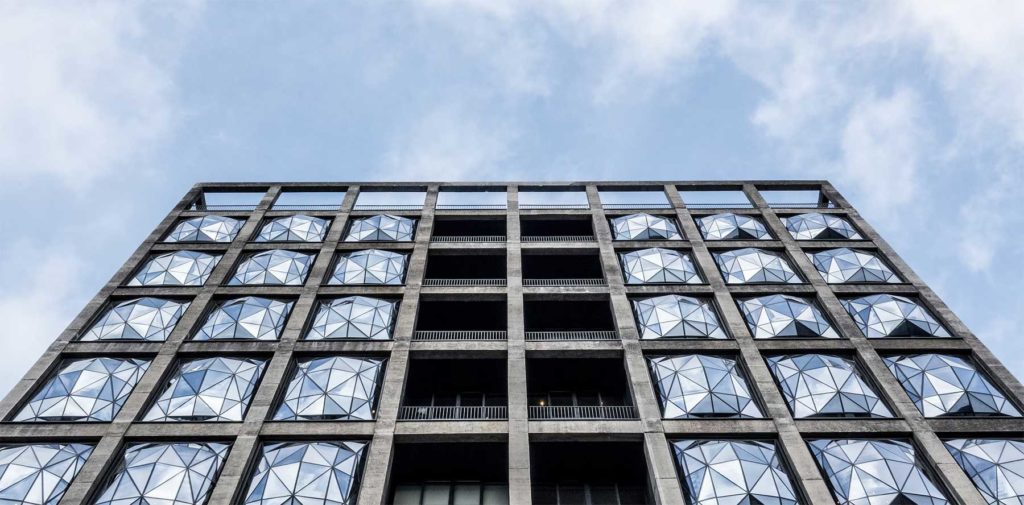
Experience Cape Town like a local
Hiking: Cape Town is known for its stunning natural beauty, and hiking is a popular activity among locals. Popular hiking spots include Table Mountain, Lion’s Head, and the Silvermine Nature Reserve.
Surfing: Cape Town has some of the best surf spots in South Africa, and surfing is a popular pastime among locals. Popular surfing spots include Muizenberg, Big Bay, and Llandudno.
Wine Tasting: The Cape Winelands, located just outside of Cape Town, are home to some of South Africa’s best vineyards. Wine tasting is a popular activity among locals, who enjoy exploring the vineyards and trying the different wines.
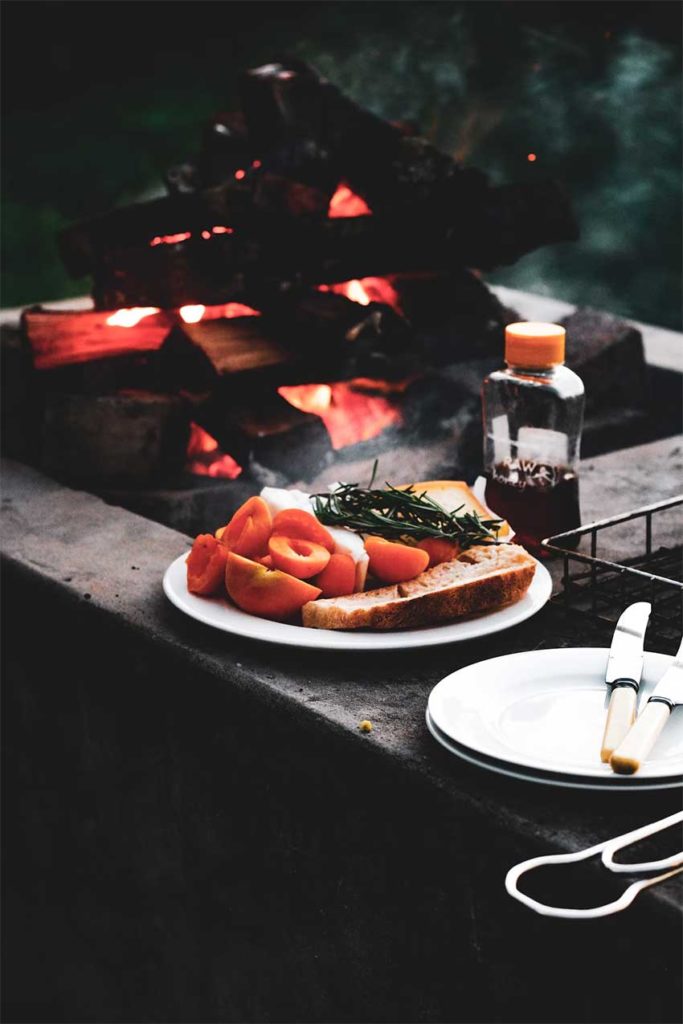
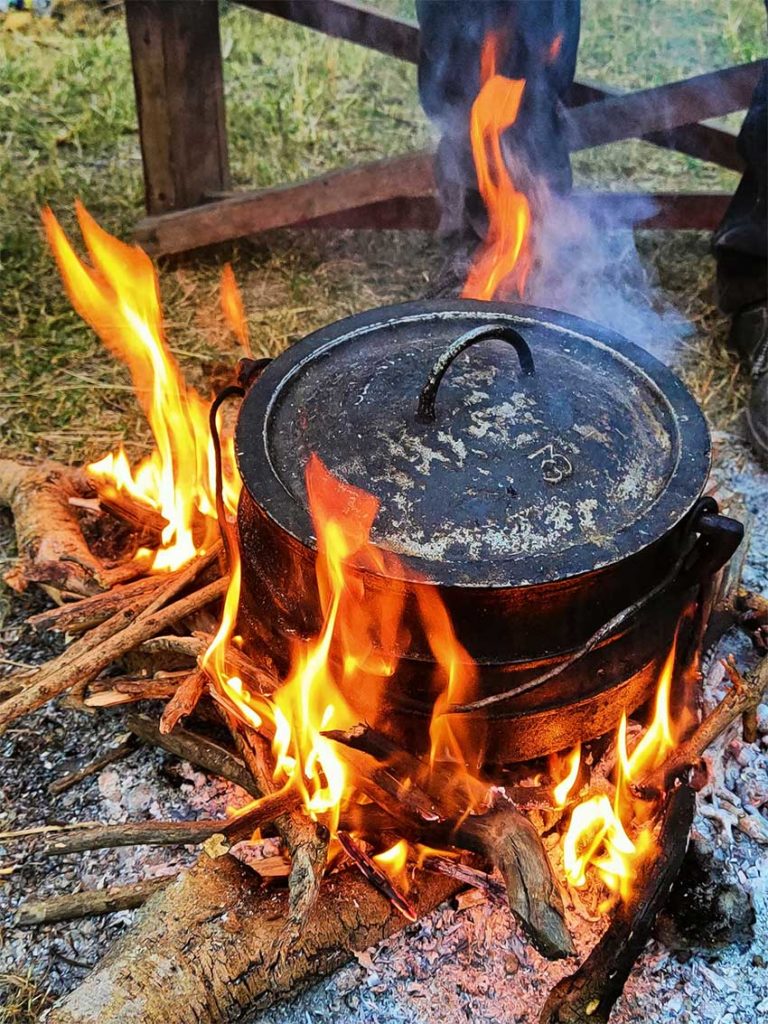
Eating Out: Cape Town is known for its vibrant food scene, with a variety of restaurants and cafes serving up delicious cuisine from around the world. Locals enjoy trying new restaurants and revisiting old favorites.
Beaches: Cape Town has several beautiful beaches that are popular among locals, including Clifton, Camps Bay, and Muizenberg. Locals enjoy spending time at the beach, swimming, sunbathing, and playing beach volleyball.
Music and Entertainment: Cape Town has a lively music and entertainment scene, with a variety of live music venues, theaters, and comedy clubs. Locals enjoy checking out new acts and attending shows with friends.
Markets: Cape Town has several markets that are popular among locals, including the Old Biscuit Mill in Woodstock, the Hout Bay Market, and the Bay Harbour Market in Simon’s Town. Locals enjoy browsing the stalls, trying new foods, and finding unique treasures.
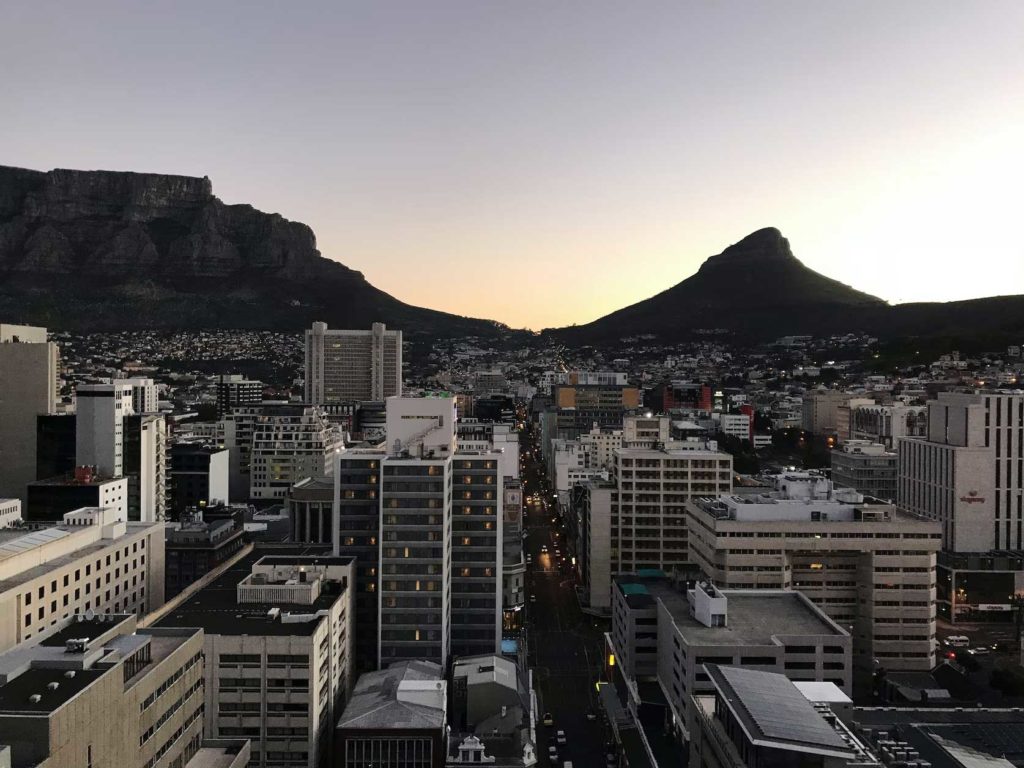
Where to stay in Cape Town – the best hotels to stay in Cape Town
One&Only Cape Town: Located in the V&A Waterfront, the One&Only Cape Town is a luxury hotel that offers stunning views of Table Mountain and the surrounding harbor. The hotel features several restaurants, a spa, a fitness center, and a private island that can be accessed by water taxi.
Belmond Mount Nelson: The Belmond Mount Nelson is a historic hotel located in the heart of Cape Town’s City Bowl. The hotel features several restaurants, a spa, a fitness center, and a beautiful garden with two heated swimming pools.
The Silo Hotel: The Silo Hotel is a stylish boutique hotel located in the V&A Waterfront. The hotel is housed in a former grain silo and features a rooftop bar with panoramic views of the city, a spa, a fitness center, and a pool.
The Twelve Apostles Hotel and Spa: The Twelve Apostles Hotel and Spa is a luxury hotel located in Camps Bay, offering stunning views of the Atlantic Ocean and the Twelve Apostles mountain range. The hotel features several restaurants, a spa, a fitness center, and a pool.
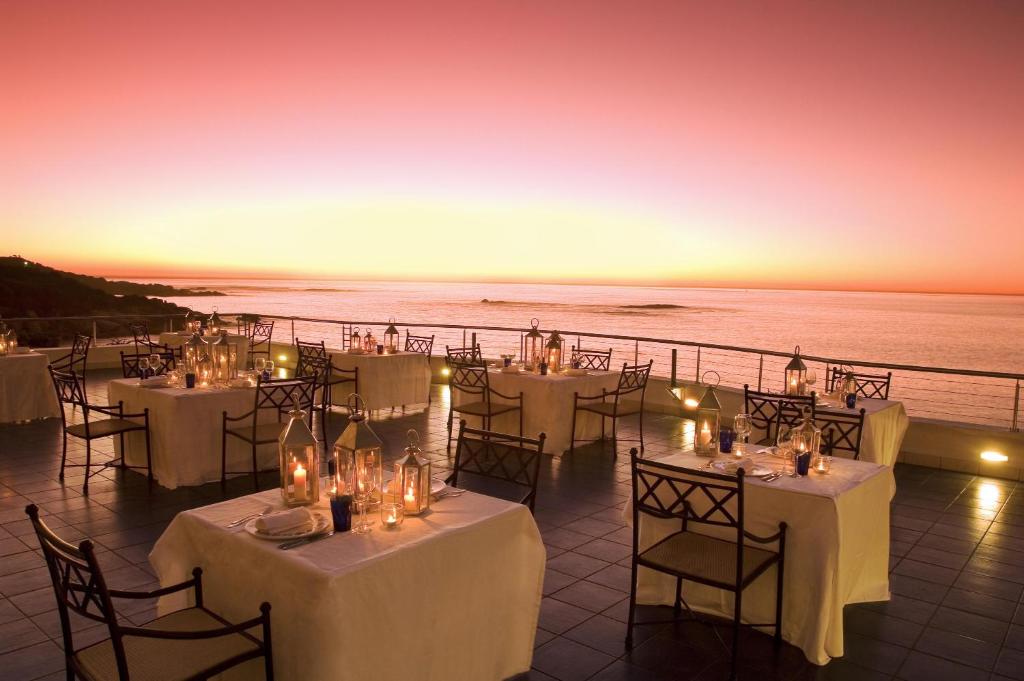
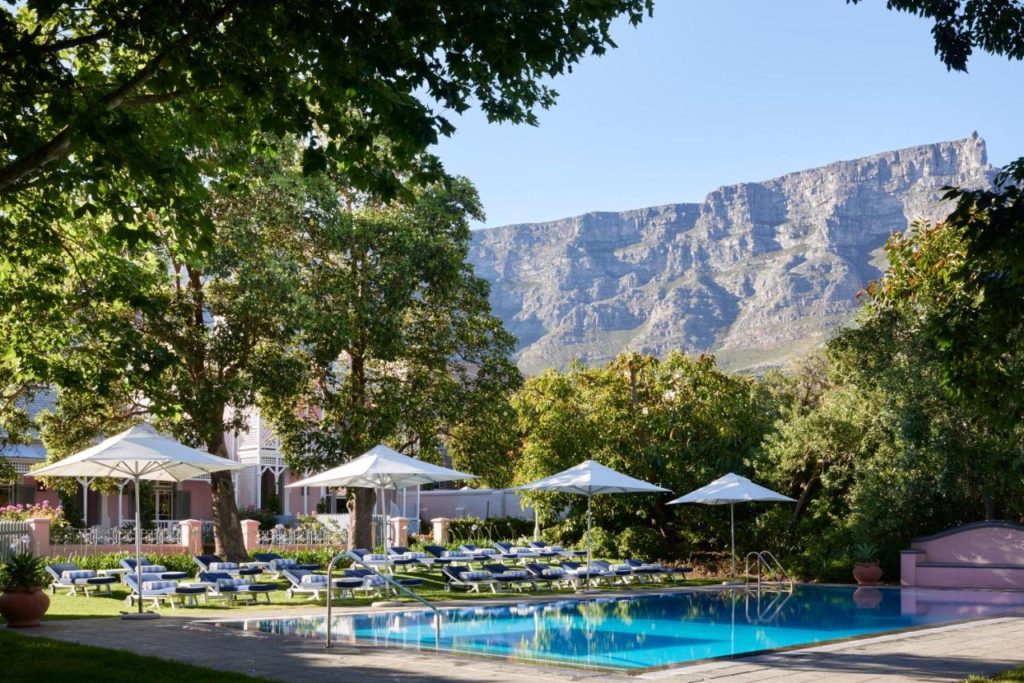
The Taj Cape Town: The Taj Cape Town is a luxurious hotel located in the heart of the city, in the historic Bo-Kaap neighborhood. The hotel features several restaurants, a spa, a fitness center, and a pool.
Ellerman House: Ellerman House is a boutique hotel located in the exclusive suburb of Bantry Bay. The hotel offers stunning views of the Atlantic Ocean and features several restaurants, a spa, a fitness center, and a pool.
The Cape Grace: The Cape Grace is a luxurious hotel located in the V&A Waterfront. The hotel offers stunning views of Table Mountain and the harbor, and features several restaurants, a spa, a fitness center, and a pool.
The Cellars-Hohenort: The Cellars-Hohenort is a luxury hotel located in the leafy suburb of Constantia. The hotel is housed in a historic manor house and features several restaurants, a spa, a fitness center, and a pool.
The Victoria & Alfred Hotel: The Victoria & Alfred Hotel is a stylish hotel located in the V&A Waterfront, offering stunning views of the harbor and Table Mountain. The hotel features several restaurants, a spa, and a pool.
The Queen Victoria Hotel: The Queen Victoria Hotel is a boutique hotel located in the V&A Waterfront, offering stunning views of the harbor and Table Mountain. The hotel features a restaurant, a spa, and a pool.
See also our selection of the best hotels in Cape Town
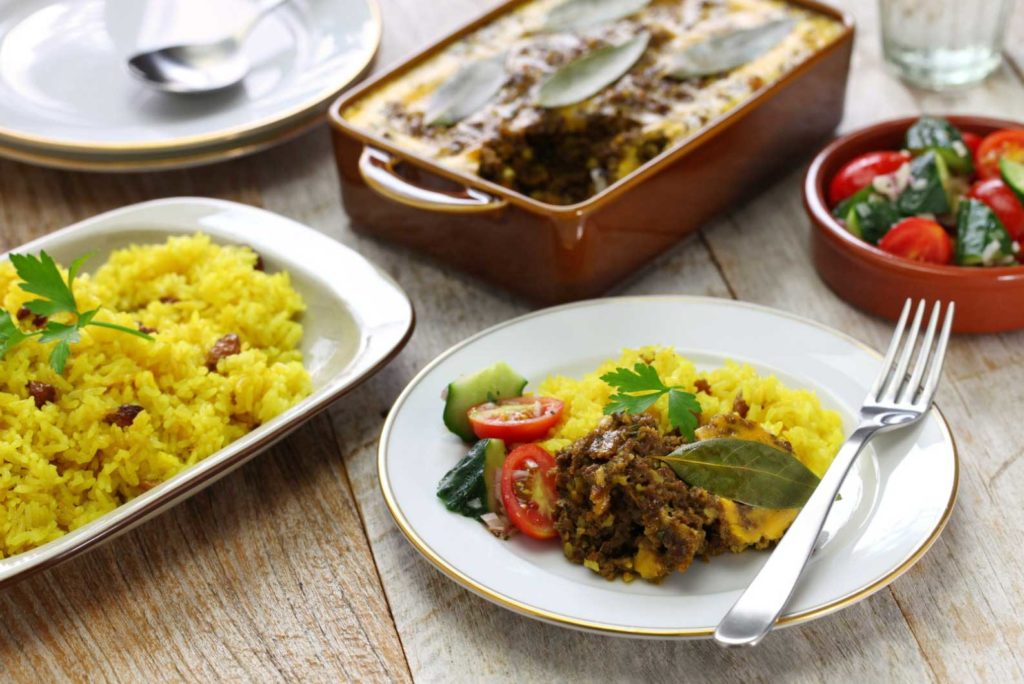
Food and drinks in Cape Town
Traditional dishes you should try
Bobotie: Bobotie is a popular South African dish made with spiced minced meat, topped with a layer of egg custard and baked. To try this dish, head to Gold Restaurant, a popular restaurant in Cape Town that specializes in African cuisine.
Gatsby: The Gatsby is a popular Cape Town street food, consisting of a long roll filled with fries, meat (such as steak or chicken), and salad. To try this dish, head to Mariam’s Kitchen, a popular spot in the Bo-Kaap neighborhood.
Bunny Chow: Bunny Chow is a South African dish that originated in Durban, but can be found in Cape Town as well. It consists of a hollowed-out loaf of bread filled with curry, usually made with chicken or lamb. To try this dish, head to Eastern Food Bazaar, a popular food hall in the city center.
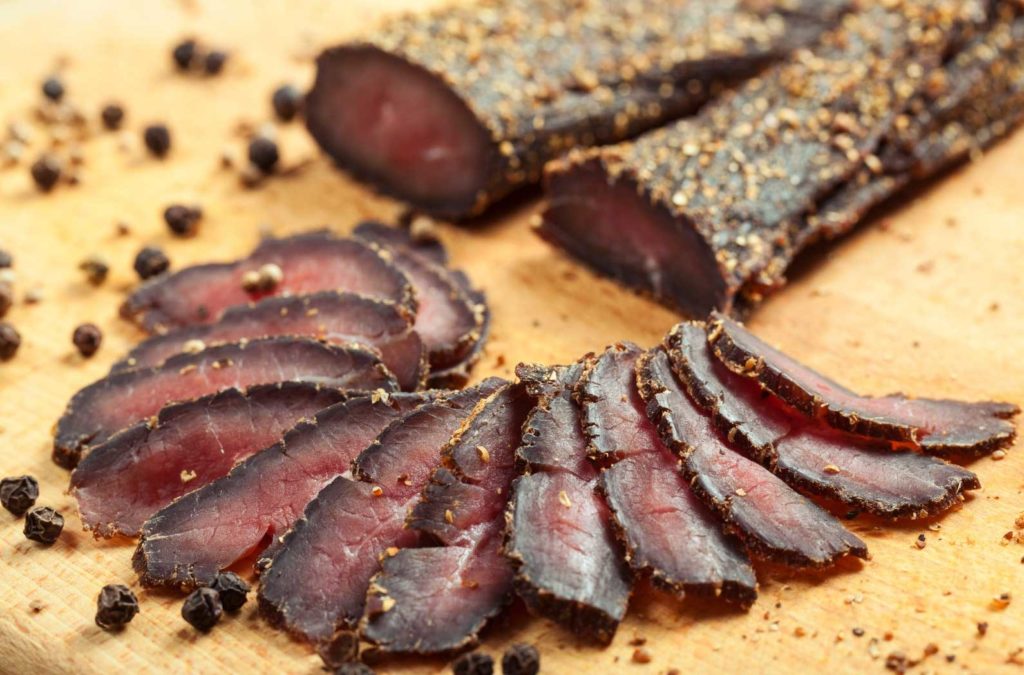
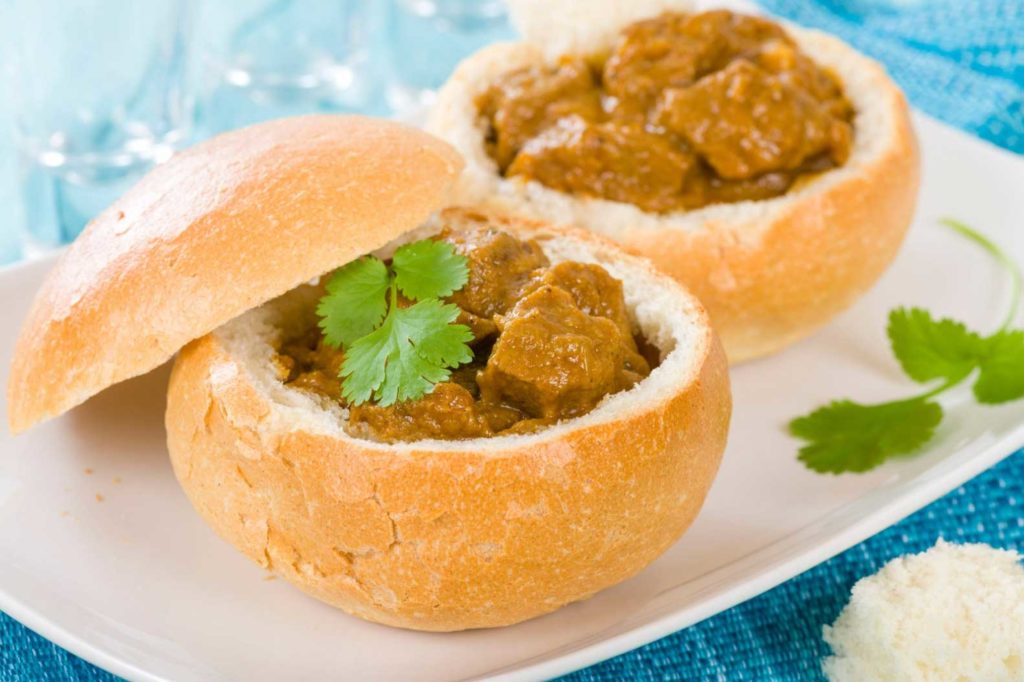
Cape Malay Curry: Cape Malay curry is a spicy curry that is influenced by Indian and Malaysian flavors. To try this dish, head to Biesmiellah, a restaurant in the Bo-Kaap neighborhood that specializes in Cape Malay cuisine.
Biltong: Biltong is a type of dried meat that is similar to beef jerky. It is a popular snack in South Africa and can be found in many grocery stores and markets throughout Cape Town.
Malva Pudding: Malva Pudding is a traditional South African dessert made with apricot jam and served with custard or ice cream. To try this dessert, head to The Test Kitchen, a renowned restaurant in Cape Town that offers a modern twist on traditional South African cuisine.
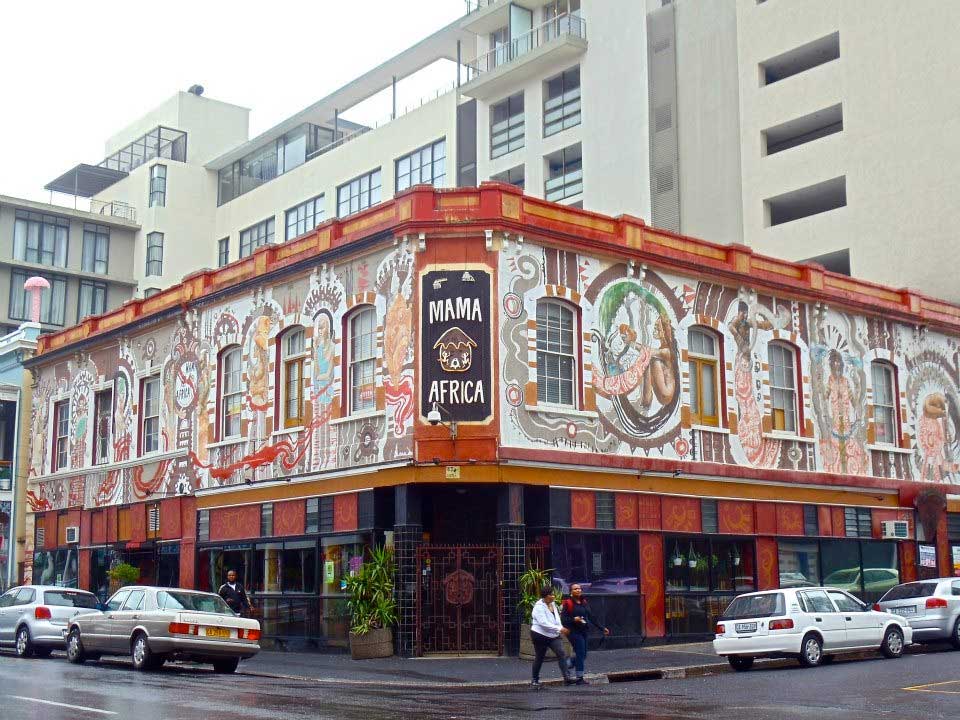
Cape Town iconic restaurants
The Test Kitchen: The Test Kitchen is a renowned restaurant located in the Old Biscuit Mill in Woodstock. It has been named one of the World’s 50 Best Restaurants and offers a modern twist on traditional South African cuisine.
The Codfather: The Codfather is a popular seafood restaurant located in Camps Bay, known for its fresh seafood and sushi. Diners can select their fish or seafood from a display and have it cooked to their liking.
La Colombe: La Colombe is a fine-dining restaurant located in Constantia, known for its innovative cuisine and stunning views of the vineyards. It has been named one of the World’s 50 Best Restaurants.
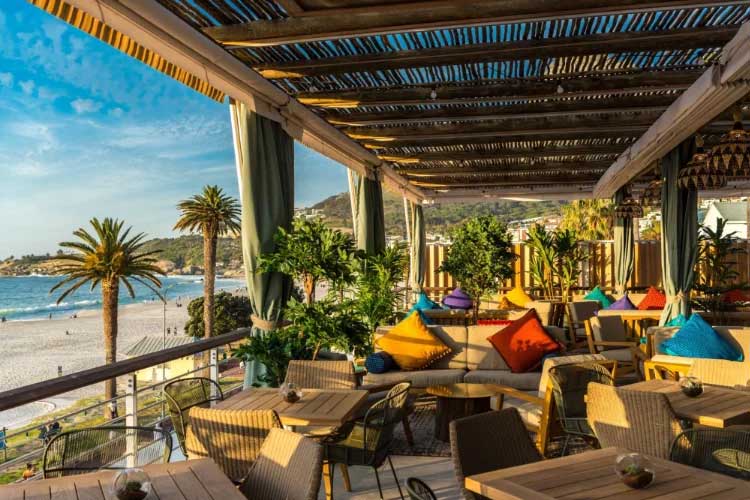
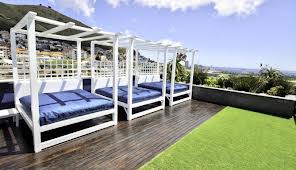
Mama Africa: Mama Africa is a popular restaurant located in the heart of the city, known for its traditional African cuisine and live music. Diners can enjoy dishes such as bobotie, ostrich steak, and peri-peri chicken.
The Hussar Grill: The Hussar Grill is a steakhouse with multiple locations throughout Cape Town, known for its classic steaks and old-world charm. The décor includes dark wood paneling and leather chairs.
The Pot Luck Club: The Pot Luck Club is a trendy restaurant located in the Old Biscuit Mill in Woodstock, offering a tapas-style menu and stunning views of the city. It has been named one of the World’s 50 Best Restaurants.
Gold Restaurant: Gold Restaurant is a popular restaurant located in the city center, offering a traditional African dining experience with live music and dancing. Diners can enjoy dishes such as bobotie, Cape Malay curry, and boerewors.
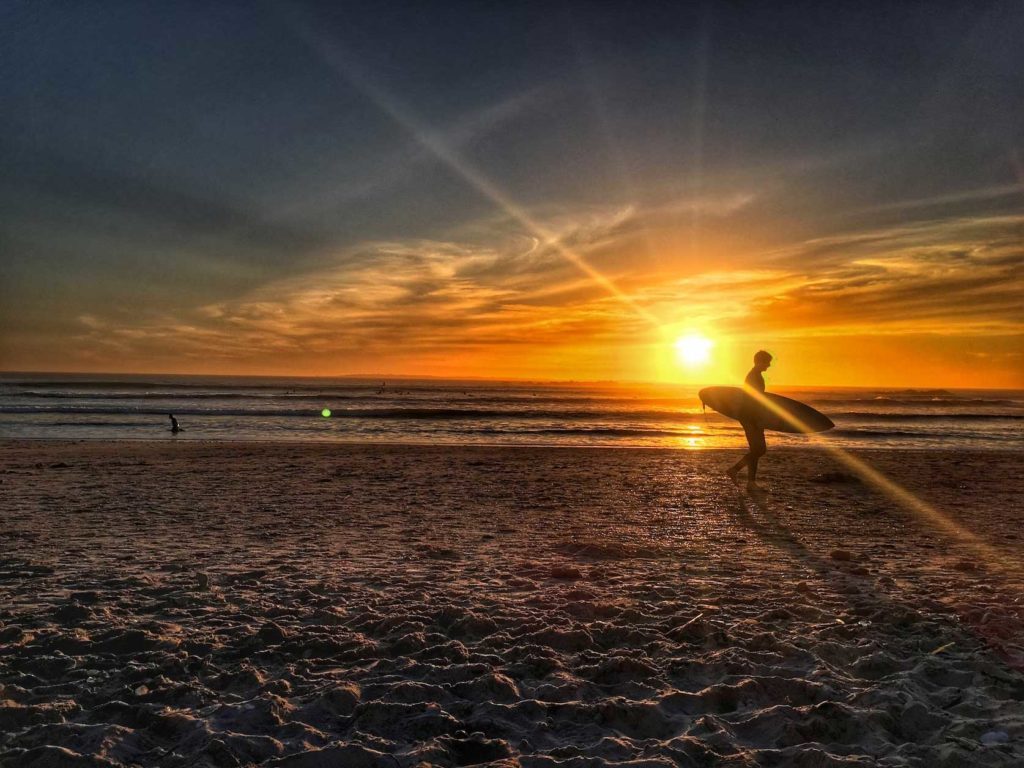
Cape Town best rooftops
The Silo Rooftop: The Silo Rooftop is located atop The Silo Hotel in the V&A Waterfront. It offers stunning views of the harbor and Table Mountain, along with a menu of small plates and cocktails.
The Sky Bar at The Grey Hotel: The Sky Bar is located atop The Grey Hotel in the De Waterkant neighborhood. It offers stunning views of the city and Table Mountain, along with a menu of craft cocktails and tapas-style plates.
Tjing Tjing Rooftop Bar: Tjing Tjing Rooftop Bar is located in the heart of the city, in the historic Longmarket Street. It offers stunning views of the city and Table Mountain, along with a menu of Asian-inspired cocktails and snacks.

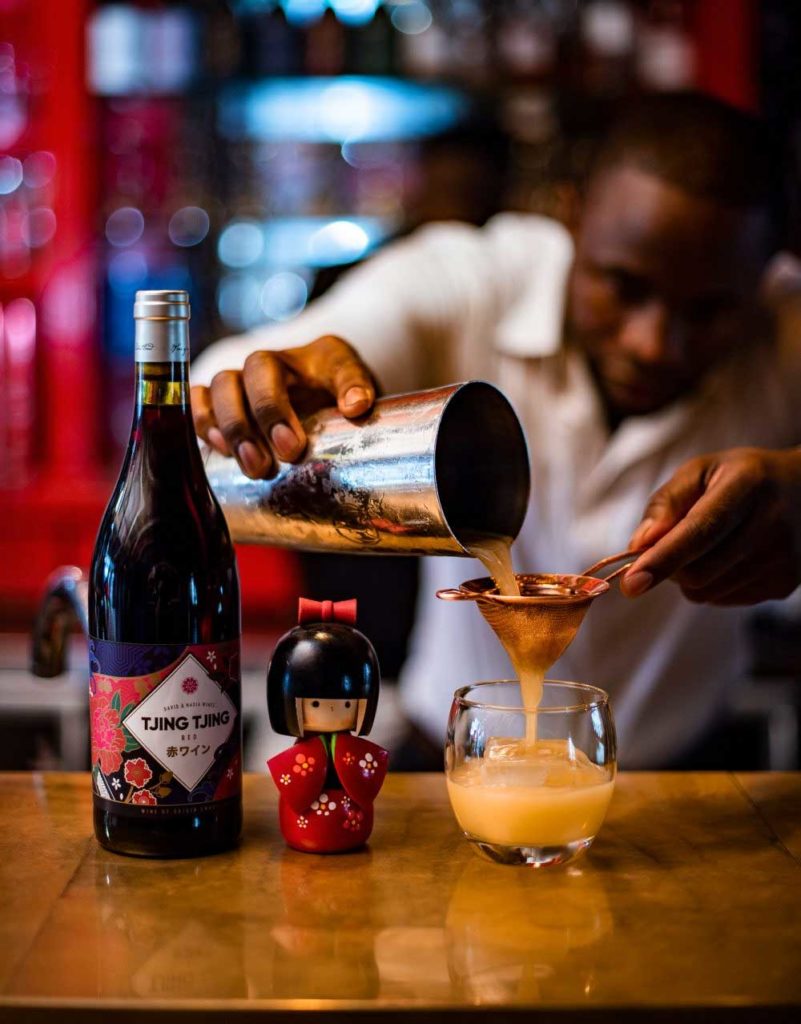
The Ghibli Bar and Pool Terrace: The Ghibli Bar and Pool Terrace is located atop the Radisson Blu Hotel Waterfront in the Mouille Point neighborhood. It offers stunning views of the harbor and Atlantic Ocean, along with a menu of cocktails, snacks, and light meals.
The Vue Sky Bar and Lounge: The Vue Sky Bar and Lounge is located atop the Houghton Hotel in the city center. It offers stunning views of the city and Table Mountain, along with a menu of cocktails and light meals.
The Cape Milner Rooftop Bar: The Cape Milner Rooftop Bar is located in the Tamboerskloof neighborhood, offering stunning views of Table Mountain and the city. It offers a menu of cocktails, wines, and light meals.
The Rockwell Rooftop Bar: The Rockwell Rooftop Bar is located atop The Rockwell All Suite Hotel in the De Waterkant neighborhood. It offers stunning views of the city and Table Mountain, along with a menu of cocktails, wines, and light meals.
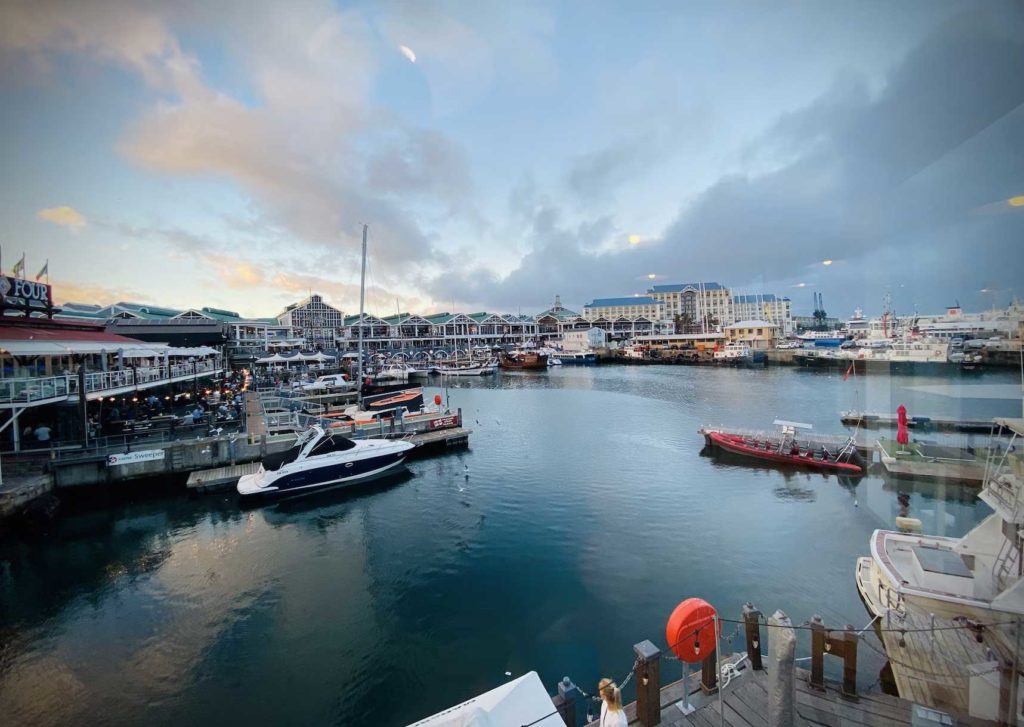
Cool bars in Cape Town
The Gin Bar – Located in the trendy suburb of Woodstock, The Gin Bar is a popular spot for gin lovers. They offer an extensive gin menu with over 70 gins to choose from and a cozy atmosphere to enjoy them in.
Orphanage Cocktail Emporium – Situated in the heart of Cape Town’s bustling city center, Orphanage Cocktail Emporium is a vintage-style bar with an impressive cocktail menu. The bar is known for its creative cocktails and unique decor, making it a popular spot for locals and tourists alike.
The House of Machines – Located in the vibrant neighborhood of Cape Town, The House of Machines is a bar, cafe, and motorcycle workshop all in one. The bar serves up a variety of craft beers and cocktails and is known for its laid-back atmosphere.
Beerhouse – Beerhouse is a popular bar chain in Cape Town, with several locations throughout the city. They offer a wide selection of craft beers from around the world, as well as tasty food to accompany your drink.
Tjing Tjing Rooftop Bar – Situated in the heart of Cape Town’s city center, Tjing Tjing Rooftop Bar is a stylish bar with stunning views of the city. The bar is known for its Japanese-inspired cocktails and delicious bar snacks, making it a popular spot for after-work drinks.
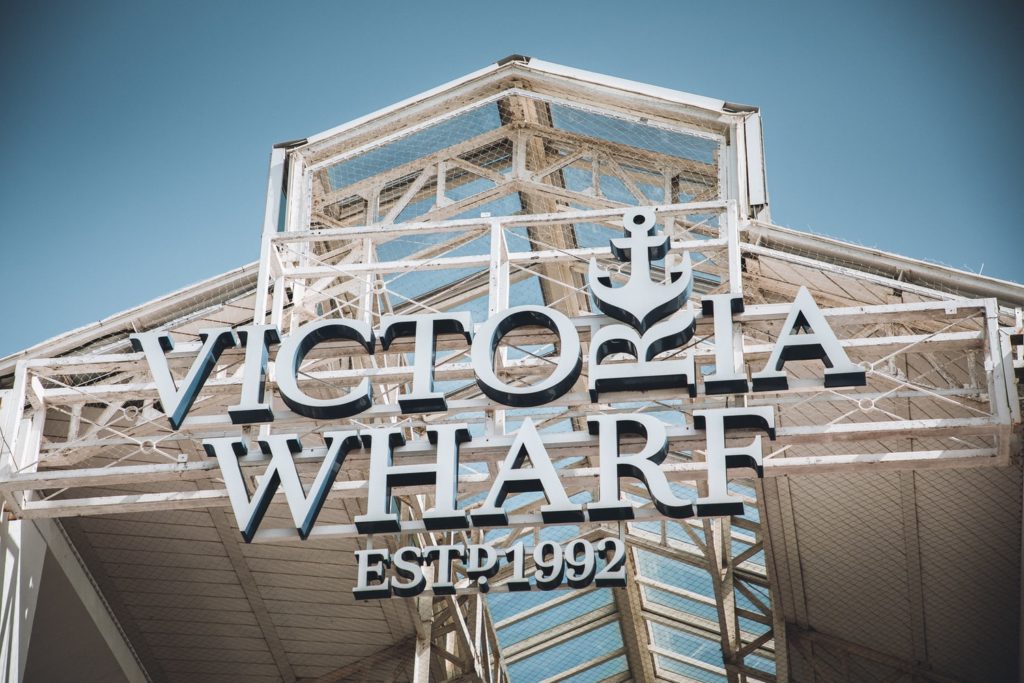
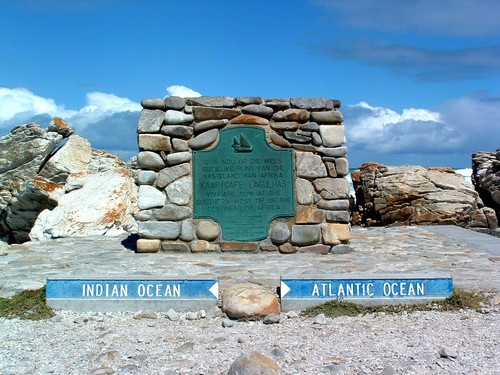
The Waiting Room – Located in the trendy neighborhood of Long Street, The Waiting Room is a popular bar and live music venue. The bar has a cozy atmosphere and offers a variety of cocktails, craft beers, and local wines.
The Power and the Glory – This hipster hangout is located in the vibrant neighborhood of Tamboerskloof. The bar serves up delicious cocktails, craft beers, and an extensive wine list. The bar also offers a small menu of tasty bar snacks.
The Piano Bar – Situated in the chic suburb of De Waterkant, The Piano Bar is a sophisticated bar that offers live music and a wide selection of cocktails. The bar has a cozy atmosphere and is known for its delicious food and drinks.
Cause Effect Cocktail Kitchen and Cape Brandy Bar – Located in the bustling neighborhood of Green Point, Cause Effect Cocktail Kitchen and Cape Brandy Bar is a unique bar that specializes in brandy cocktails. The bar has a sleek and modern design and is known for its creative cocktail menu.
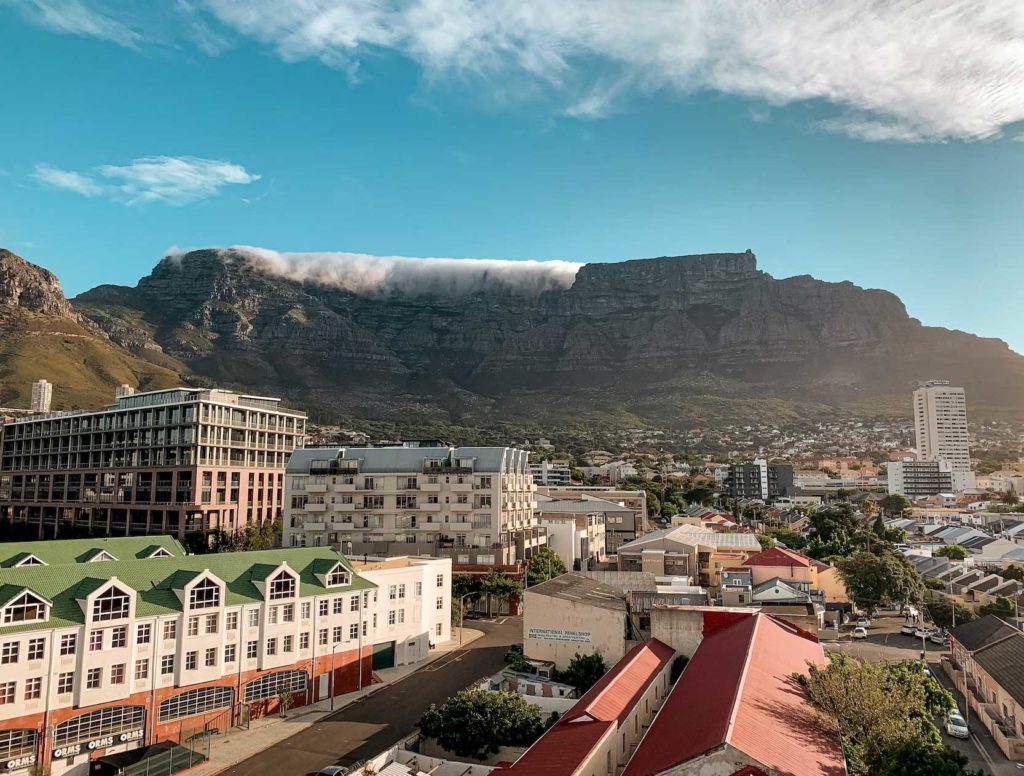
What not to do in Cape Town, things to avoid
Don’t leave valuables in plain sight in your car – Car theft is unfortunately common in Cape Town, and leaving valuables in plain sight can make your car a target. It’s best to keep your valuables out of sight, or take them with you when you leave your car.
Don’t walk alone at night – While Cape Town is generally safe during the day, it’s best to avoid walking alone at night, especially in quieter areas or areas that you are unfamiliar with. It’s always a good idea to travel with a group or take a taxi or ride-sharing service.
Don’t ignore safety warnings at beaches – Cape Town has many beautiful beaches, but they can also be dangerous. It’s important to pay attention to safety warnings and flags, and to only swim in designated areas.
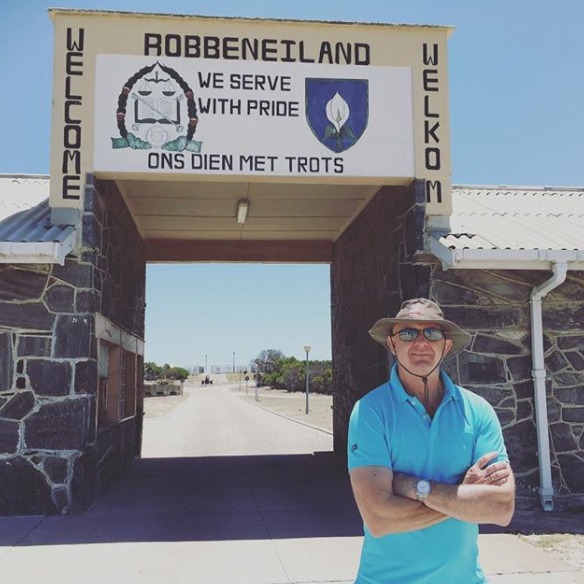
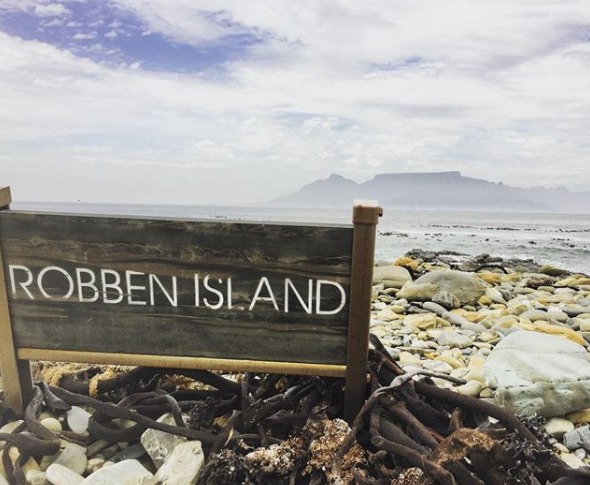
Don’t buy goods from unauthorized street vendors – While there are many street vendors selling goods in Cape Town, it’s important to only purchase from authorized vendors. Unauthorized vendors may be selling counterfeit or stolen goods, which can lead to legal trouble for you.
Don’t disrespect local customs and traditions – Cape Town has a rich cultural heritage, and it’s important to be respectful of local customs and traditions. This includes dressing modestly when visiting religious sites, being mindful of local etiquette, and avoiding offensive behavior.
Don’t ignore your surroundings – While exploring the city, it’s important to be aware of your surroundings and to keep an eye out for any suspicious activity. It’s always better to be safe than sorry, so if you feel uncomfortable or unsafe in a certain area, it’s best to leave.
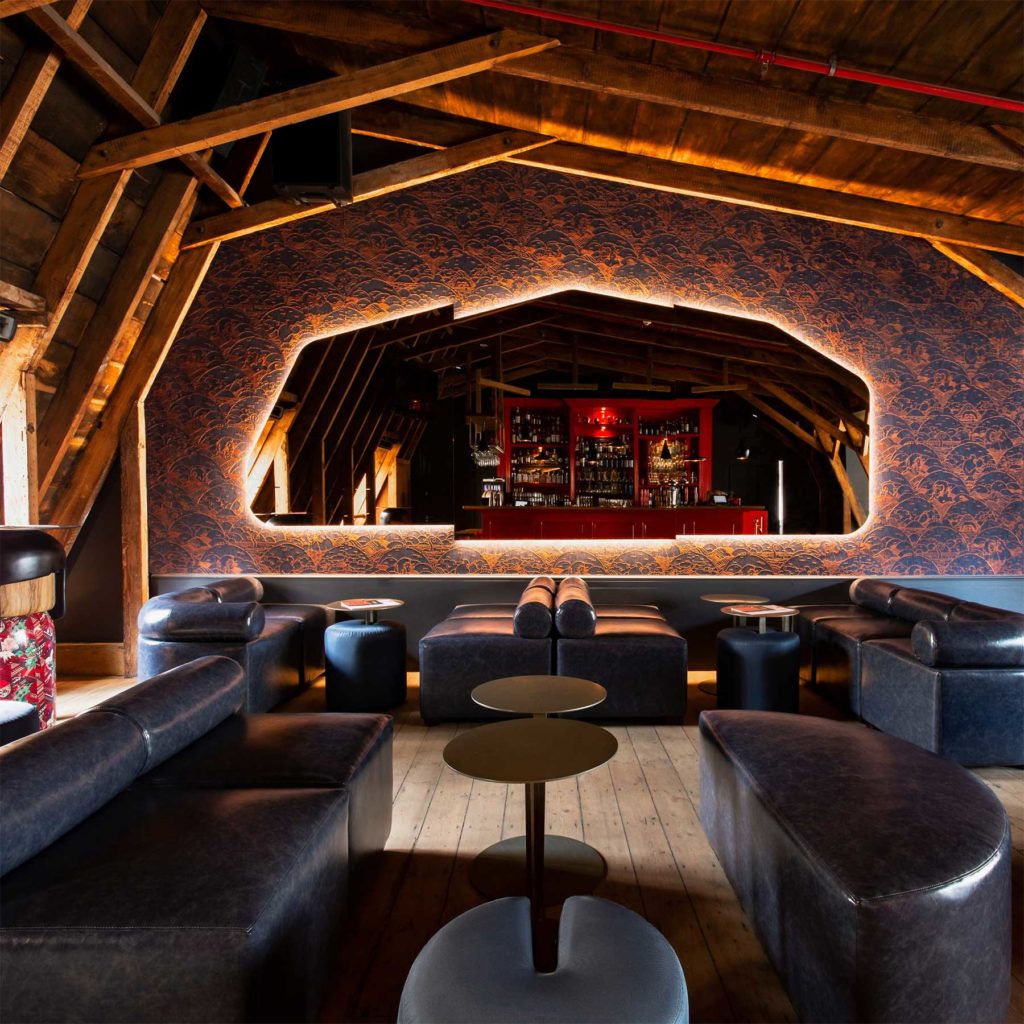
Shopping, taxes and tipping in Cape Town
When shopping or dining out in Cape Town, it’s important to be aware of the different types of charges and fees that may be added to your bill. Here’s a breakdown of the most common charges and tips to keep in mind:
Value Added Tax (VAT) – VAT is a tax that is added to most goods and services in South Africa, including shopping and dining. The current VAT rate is 15%, which is included in the price of the item or meal.
Service Charge – Some restaurants and bars may add a service charge to your bill, which is typically around 10% of the total cost. This is a fee for the service provided by the staff, and is not mandatory. If you receive exceptional service, it’s always appreciated to leave an additional tip on top of the service charge.
Tipping – In Cape Town, it’s customary to leave a tip for good service. The standard tip amount is around 10-15% of the total cost of the meal or service. Tips are typically given in cash, although some restaurants and bars may offer the option to add a tip to your credit card payment.
Credit Card Fees – Some merchants in Cape Town may charge a fee for using a credit card to pay for your purchase. This fee can vary, but is typically around 3-5% of the total cost. It’s always a good idea to check if there is a credit card fee before making a purchase.
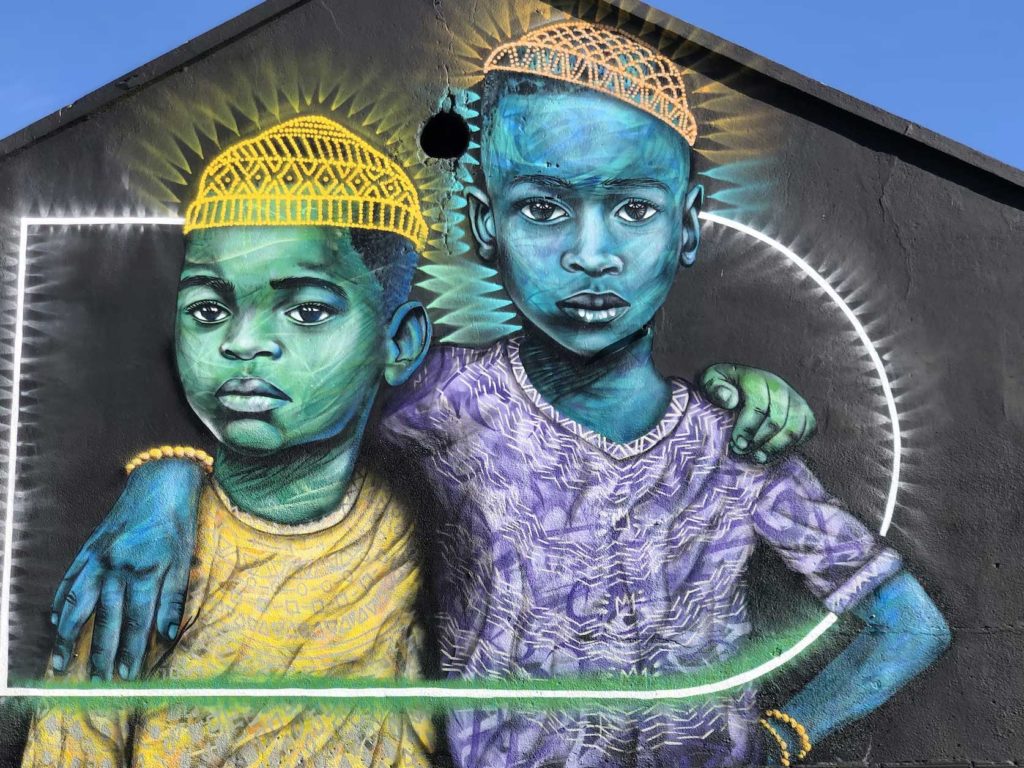
What about safety and security in Cape Town
Be aware of your surroundings – It’s always important to be aware of your surroundings, especially in busy or unfamiliar areas. Stay alert and keep an eye out for any suspicious activity.
Avoid walking alone at night – It’s best to avoid walking alone at night, especially in quiet or poorly-lit areas. If you need to go out at night, travel with a group or take a taxi or ride-sharing service.
Don’t carry large amounts of cash or valuables – Keep your cash and valuables out of sight, and only carry what you need for the day. It’s best to use a money belt or a secure bag to keep your belongings safe.
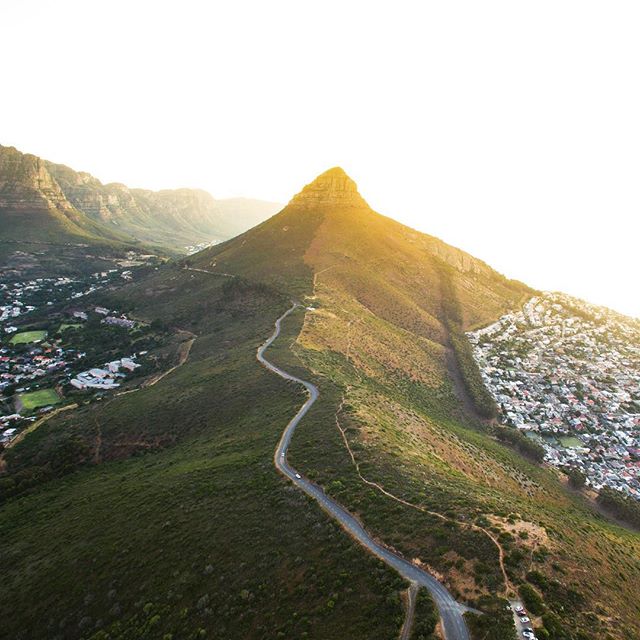
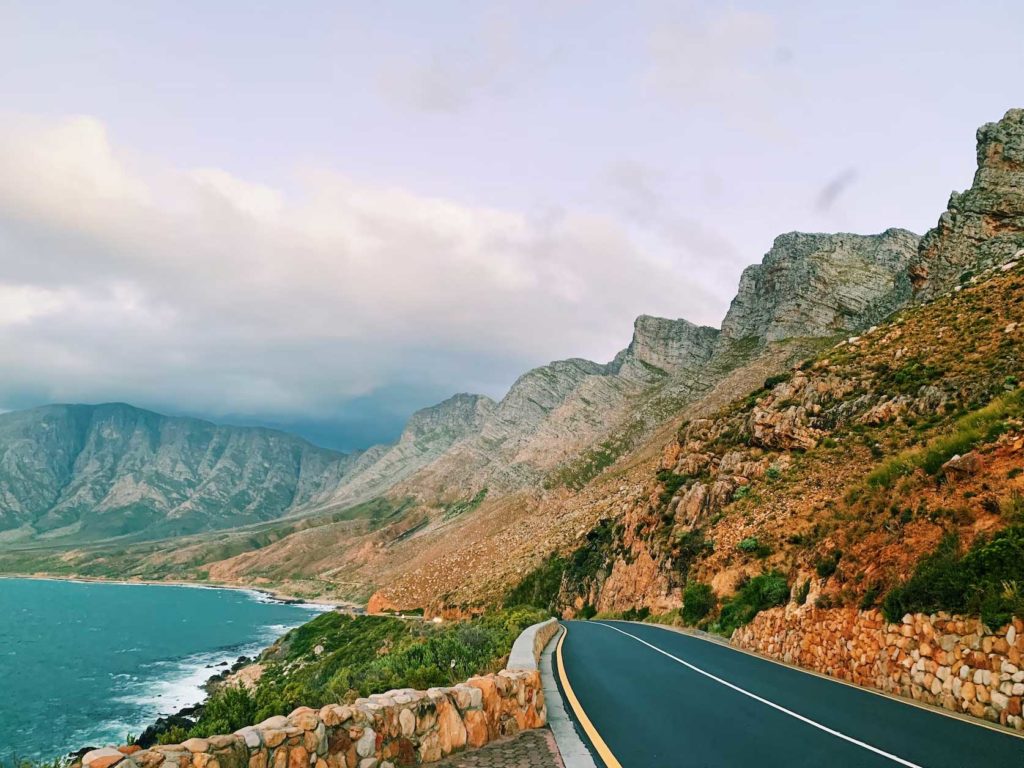
Use reputable taxi or ride-sharing services – When using a taxi or ride-sharing service, make sure to use reputable companies and only get into a marked vehicle. It’s also a good idea to share your location and trip details with a friend or family member.
Keep your hotel room or accommodation locked – Make sure to lock your hotel room or accommodation when you leave, and keep your valuables in a safe or locked drawer.
Stay up to date with local news and safety alerts – Keep an eye on local news and safety alerts to stay informed about any safety concerns or risks.
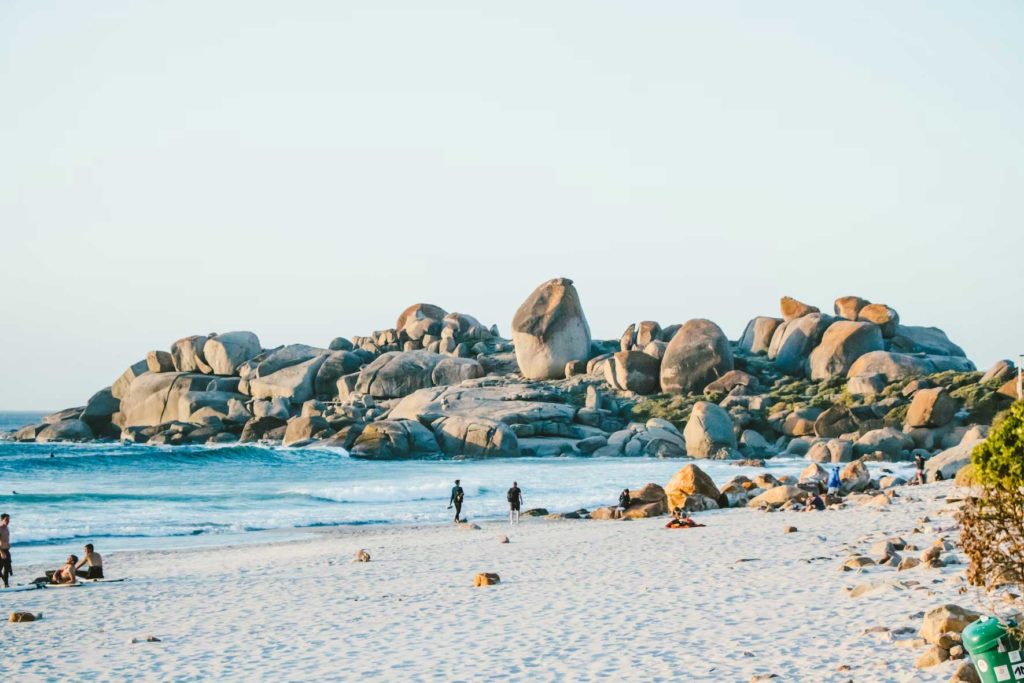
Final advice for travellers
Electricity Charging – South Africa uses a 230-volt electrical system with Type M plugs. If your electronics are not compatible with this type of plug, you’ll need a voltage converter and an adapter. It’s also a good idea to bring a portable charger with you as electricity outages can occur at times.
Cash and Card Payments – In Cape Town, you can easily find ATMs and banks where you can withdraw cash. However, it’s always a good idea to carry some cash with you as not all places accept card payments. Credit and debit cards are widely accepted in Cape Town, but it’s best to check with your bank to see if they charge any foreign transaction fees.
Public Transportation – Cape Town has a reliable and affordable public transportation system that includes buses, minivans, and trains. It’s best to use reputable taxi or ride-sharing services for traveling at night or in unfamiliar areas.
Language – The official language of Cape Town is English, but many locals also speak Afrikaans and Xhosa. It’s always helpful to learn some basic phrases in the local language, such as “hello” and “thank you.”
Safety – As mentioned earlier, it’s important to be aware of your surroundings and take necessary precautions to stay safe. Avoid displaying expensive items and don’t carry large amounts of cash with you.
Weather – Cape Town has a Mediterranean climate with mild winters and hot summers. It’s best to check the weather forecast before your trip and pack accordingly. It’s also important to note that water shortages have been a concern in Cape Town, so it’s important to conserve water where possible.
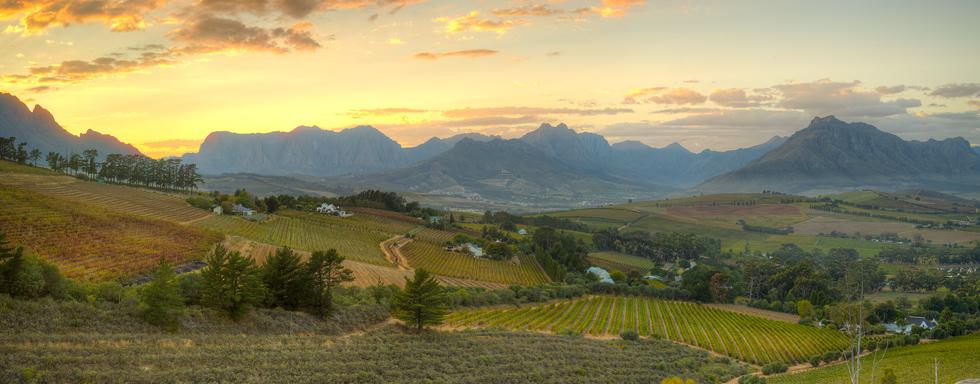
Cape Town in Movies
Cape Town has been a popular location for filmmakers, with its beautiful landscapes, unique architecture, and diverse cultural heritage. Here are some movies that were filmed in Cape Town, along with their plot and actors:
Blood Diamond (2006) – This action-packed film tells the story of a smuggler (played by Leonardo DiCaprio) and a fisherman (played by Djimon Hounsou) who join forces to recover a valuable diamond from war-torn Sierra Leone. Cape Town’s stunning landscapes, including Table Mountain and the Cape Flats, were used as locations for the film.
Safe House (2012) – This thriller stars Denzel Washington as a rogue CIA agent who is taken into custody at a safe house in Cape Town. The film features stunning shots of Cape Town’s city center, as well as the townships of Langa and Gugulethu.
Tomb Raider (2018) – This action-adventure film stars Alicia Vikander as the iconic Lara Croft, who travels to a remote island to uncover the secrets of her father’s disappearance. Cape Town’s rugged coastline and mountainous terrain were used as the backdrop for many of the film’s action sequences.
Invictus (2009) – This biographical sports drama tells the story of Nelson Mandela (played by Morgan Freeman) and the South African rugby team’s journey to win the 1995 Rugby World Cup. The film was shot on location in Cape Town and Johannesburg, and features stunning shots of Cape Town’s Green Point Stadium and the city’s iconic skyline.
Dredd (2012) – This science-fiction action film stars Karl Urban as Judge Dredd, a law enforcement officer who must battle a drug lord in a high-rise apartment complex. Cape Town’s modern architecture, including the imposing “Ponte Tower,” was used as the setting for the film.
Mad Max: Fury Road (2015) – This post-apocalyptic action film stars Tom Hardy and Charlize Theron as rebels who must fight against a tyrannical ruler in a world without water. Cape Town’s stark desert landscapes and sand dunes were used as the setting for many of the film’s action sequences.

Cape Town in books
Cape Town has a rich literary history, with many books set in and around the city. Here are some examples of books that are set in Cape Town:
Disgrace by J.M. Coetzee – This novel tells the story of a Cape Town university professor who is forced to leave his job after a scandal and moves to the Eastern Cape to live with his daughter. The book explores themes of identity, morality, and redemption in the context of post-apartheid South Africa.
Ways of Dying by Zakes Mda – This novel is set in a fictional South African township and tells the story of a professional mourner who witnesses the struggles and injustices of life in post-apartheid South Africa. The book explores themes of grief, social inequality, and the power of storytelling.
The Cape Doctor by E.J. Levy – This historical novel is set in 19th century Cape Town and tells the story of a Scottish doctor who becomes embroiled in the political and social tensions of the time. The book explores themes of identity, colonialism, and the struggle for independence.
Welcome to Our Hillbrow by Phaswane Mpe – This novel is set in Johannesburg and Cape Town and tells the story of a young man who moves to the city in search of a better life, only to become embroiled in the violence and social unrest of the time. The book explores themes of migration, identity, and the struggle for social justice.
The Woman Next Door by Yewande Omotoso – This novel is set in a suburban neighborhood in Cape Town and tells the story of two elderly neighbors who have a long-standing feud. The book explores themes of race, class, and the complexities of human relationships.
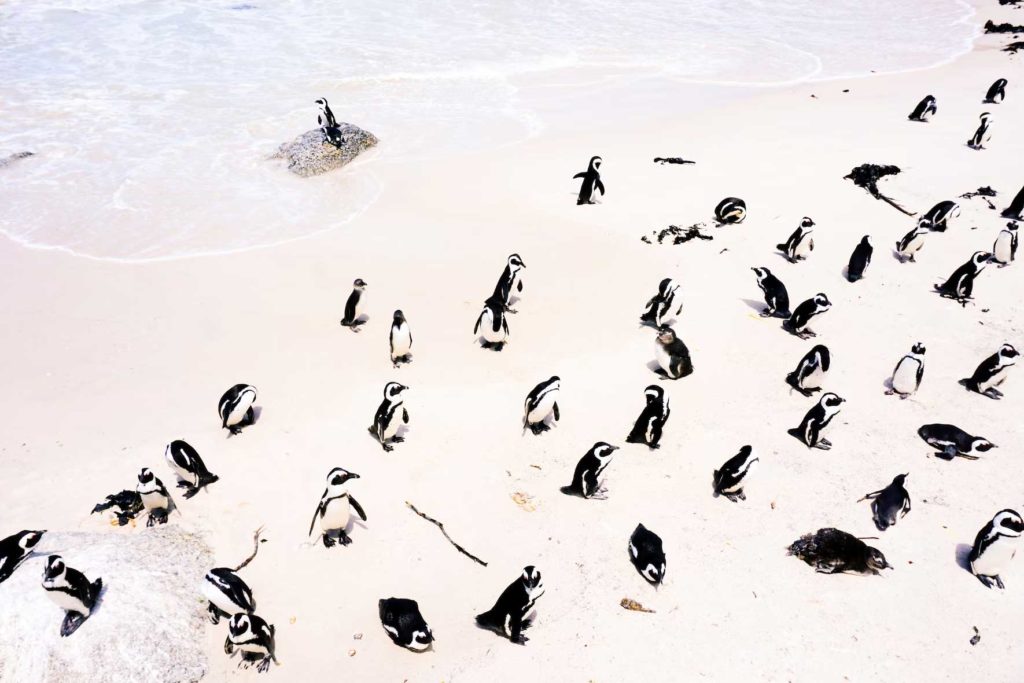
–
See our Johannesburg Travel Guide